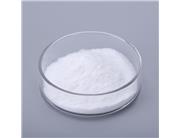Description:
Cimetidine is a medication that belongs to a class of drugs known as H2 blockers. Here is some information about Cimetidine and its uses:
Purpose: Cimetidine is primarily used to reduce the production of stomach acid. It is commonly prescribed to treat conditions such as peptic ulcers, gastroesophageal reflux disease (GERD), and conditions where excessive stomach acid production is a concern.
Mechanism of Action: Cimetidine works by blocking histamine H2 receptors in the stomach, which are responsible for stimulating acid secretion by the stomach's parietal cells.
By inhibiting these receptors, cimetidine reduces the amount of acid produced in the stomach.
Indications:
Peptic Ulcers: Cimetidine is often used to treat peptic ulcers, which are open sores that develop on the inner lining of the stomach or the upper part of the small intestine.
Gastroesophageal Reflux Disease (GERD): Cimetidine can help relieve symptoms of GERD, such as heartburn and acid reflux, by reducing the amount of acid that flows back into the esophagus.
Zollinger-Ellison Syndrome: This is a rare condition characterized by the overproduction of stomach acid.
Cimetidine may be used to manage symptoms in individuals with this syndrome.
Dosage Forms: Cimetidine is available in various forms, including tablets, capsules, and oral liquid formulations.
The dosage and frequency of administration will depend on the specific condition being treated and the individual's response to the medication.
Administration: Cimetidine is usually taken by mouth as directed by a healthcare provider.
It is important to follow the prescribed dosage and schedule to achieve the best results. In some cases, cimetidine may be taken with food to help reduce stomach upset.
Side Effects: Common side effects of cimetidine may include headache, dizziness, diarrhea, constipation, and fatigue. In rare cases, cimetidine may cause more serious side effects such as changes in heart rhythm or liver problems.
It is important to report any unusual or severe side effects to a healthcare provider.
Precautions: Cimetidine may interact with certain medications, so it is important to inform healthcare providers about all medications, supplements, and herbal products being taken. Individuals with certain medical conditions, such as kidney problems or a history of stomach cancer, may need special monitoring while taking cimetidine.
Consultation: The use of cimetidine should be overseen by a healthcare provider, who can determine the appropriate dosage, duration of treatment, and monitoring required based on the individual's medical history and condition being treated.
In summary, cimetidine is a medication commonly used to reduce stomach acid production in the treatment of conditions such as peptic ulcers, GERD, and excessive stomach acid production.
By blocking histamine H2 receptors, cimetidine helps alleviate symptoms associated with these conditions and promote healing of the gastrointestinal tract.
It is important to use cimetidine as directed by a healthcare provider and to be aware of potential side effects and precautions associated with its use.
Product Forms: Injectable Solution, Oral Capsules/Tablets
Payment method: T/T in advance, Paypal, Western Union, L/C, etc.
Shipping ways: Courier, Air, Sea, Road
Storage Condition: Dry, dark, and at 0 - 4 C for short term (days to weeks) or -20 C for long term (months to years).

 China
China




